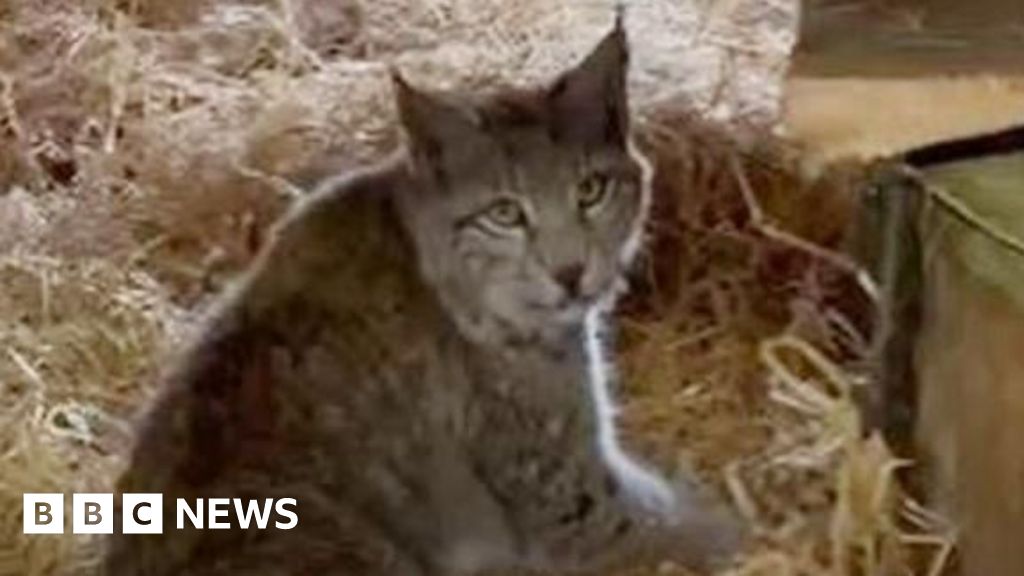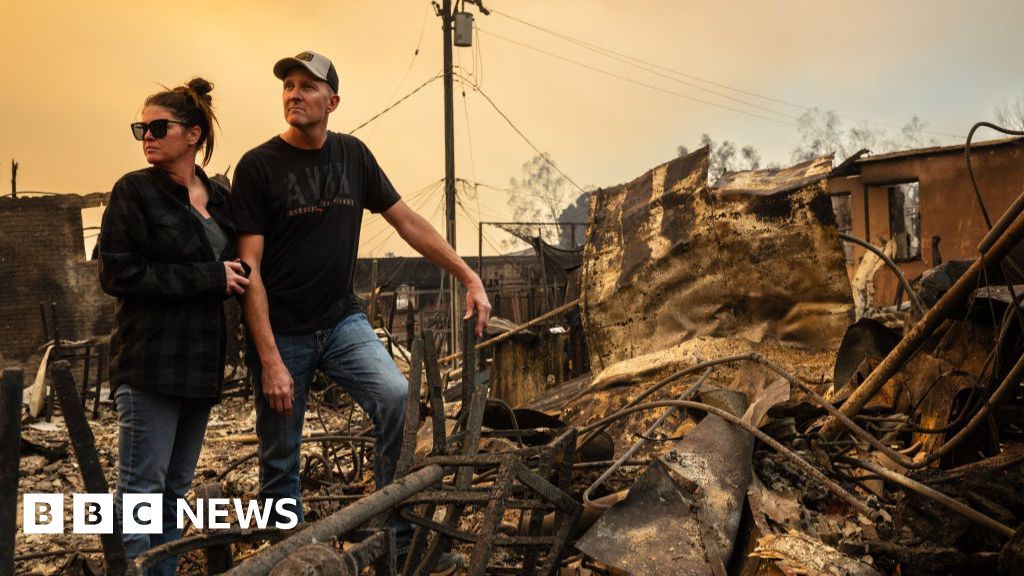Patrick Harvie says Humza Yousaf's decision to end the power-sharing agreement has 'consequences'
By Craig Williams
BBC Scotland
The Scottish Greens have said they will vote against First Minister and SNP leader Humza Yousaf when he faces a motion of no-confidence.
The move came after he ended the power-sharing agreement between the parties.
The Greens said they no longer believed the Scottish government would do the right thing for climate and nature policies.
Former first minister and SNP leader, Alex Salmond, said Mr Yousaf was in a "very precarious position".
The vote could come as early as next Wednesday and the Greens' decision means Mr Yousaf could struggle to win the motion, which was tabled by Scottish Conservative leader Douglas Ross.
The breakdown of MSPs in the parliament means former SNP MSP Ash Regan, who is now an Alba Party MSP, could potentially decide Mr Yousaf's fate.
If every Conservative, Labour and Liberal Democrat MSP joins the Greens in voting against Mr Yousaf it would give them 64 votes to the SNP's 63.
The result would then depend upon which way Ms Regan decided to vote.
Ms Regan, who ran for the leadership of the SNP against Mr Yousaf, later left the party over its policies on gender recognition reforms.
Alex Salmond said Mr Yousaf had made Ms Regan the "most powerful MSP in the Scottish Parliament".
Mr Salmond said the first minister had managed to annoy every opposition party in Holyrood.
He said Ms Regan was writing to the first minister setting out her concerns about the Scottish government's priorities and seeing if there were areas where her party and the SNP could work together ahead of any confidence vote.
The Scottish Green co-leaders spoke to journalists at the Scottish Parliament
Ms Regan has told the BBC's Scotland editor, James Cook, that she has not made her mind up yet on which way to vote.
In the event of a tied vote, the presiding officer would vote to retain the status quo.
Speaking as they announced their decision, Scottish Greens co-leader Lorna Slater said the party entered the agreement on the basis that they would work together to deliver a "progressive policy programme".
But she said Mr Yousaf's decision to end it came with no reassurance that the SNP would continue with those objectives.
"It abruptly ends the pro-independence majority government which the public voted for, and which members of both parties supported," she said.
"Therefore, Scottish Green MSPs will support a vote of no confidence against the first minister if such a motion comes before parliament in the coming weeks".
Image source, NASA
Image caption,The first minister announced the end of the Bute House Agreement after an emergency cabinet meeting
The end of the Bute House Agreement began with an early morning meeting between Mr Yousaf and the co-leaders of the Scottish Green Party, Patrick Harvie and Lorna Slater.
They were seen walking out of Bute House - the first minister's official residence in Edinburgh - before an emergency cabinet meeting.
Mr Yousaf said he had formally notified Ms Slater and Mr Harvie that the agreement - which was signed by the two parties following the Holyrood election in 2021 - had been terminated.
The two Green politicians immediately left their junior ministerial posts, which they held in return for their party's support for the SNP-led government.
The Greens later said the SNP had "sold out future generations".
'In the national interest'
The first minister's spokesman said Mr Yousaf briefed his cabinet at 08:30 for an hour and his colleagues "enthusiastically endorsed the position", banging the table to show their support.
At a press conference later in Bute House, Mr Yousaf said he had thanked his former colleagues for their contribution to the Scottish government and made it clear the SNP intended to work with the Greens "where we can" and "in the national interest".
"The Bute House agreement was intended to provide stability to the Scottish government and it has made possible a number of achievements," he said.
"But it has served its purpose - it is no longer guaranteeing a stable arrangement in parliament.
"The events of recent days have made that clear and therefore after careful consideration I believe that going forward it is in the best interest of the people of Scotland to pursue a different arrangement."
A 'total U-turn'
The news that the agreement was being scrapped came days after the Greens announced that party members would be given a vote on whether they should remain in power with the SNP.
That decision came after Energy Secretary Mairi McAllan, who is a member of the SNP, announced the scrapping of the government's existing emissions targets.
That sparked anger from many grassroots Green members.
And there was further disquiet from the Greens after Scotland's NHS said it was pausing prescribing puberty blockers to under-18s referred by the country's only specialist clinic, following the publication of the Cass Review.
Mr Harvie said there was "distress" in the party over the move and that young trans people may now "not get access to the treatment they need".
He had previously said he would quit as co-leader if the party voted to end the agreement, but on Thursday he said his position was a discussion for another day.
Speaking to journalists in the parliament's garden lobby, Mr Harvie said the first minister's decision was a "total U-turn from recent days".
Asked whether the party would be as co-operative with the government over negotiating the next Holyrood budget, he replied: "Do you think the current government will still be in place for the next budget?"
'Failed first minister'
The Scottish Conservatives announced the no-confidence motion during First Minister's Questions with their leader, Douglas Ross, branding Mr Yousaf "weak" and a "failed first minister".
The SNP leader accused the Conservatives of game-playing, insisting the Bute House Agreement had "served its purpose" and lasted 19 times longer than Liz Truss's premiership.
Mr Yousaf went on to warn Mr Ross the Conservatives would be "judged very poorly" for playing "political games".
"There's a general election coming this year and I can guarantee you the electorate will give the Conservative Party an almighty thumping, show them the door, and they deserve nothing less," he said.
Speaking to journalists at a briefing following First Minister's Questions, a spokesman for Mr Yousaf refused to say whether he would resign if he lost the vote, describing the question as "hypothetical".
The SNP government is in no position to guarantee that Mr Yousaf will win the confidence vote, likely to be held next Thursday.
In fact the first minister's position now looks very precarious.
If all opposition MSPs join forces against the first minister, he will lose.
Strictly speaking, that vote is not binding but politically he would more or less be obliged to resign.
Mr Yousaf could avoid that scenario if a couple of opposition MSPs abstain, or one switches sides and backs him.
Now that the Greens have made clear their group will vote no-confidence in him, he may have to try to make a deal with Alba MSP Ash Regan.
She is writing to him to discuss possible terms for her support. These are likely to include prioritising independence and women's rights.
The SNP have 63 MSPs. Their opponents have 65. One switcher to the government could result in a tied vote in which the presiding officer (equivalent of the Commons speaker) would be expected to back no change.
That's an arithmetical route to retaining office - but one that would leave the first minister politically beholden.
 (1).png)
 8 months ago
11
8 months ago
11


















